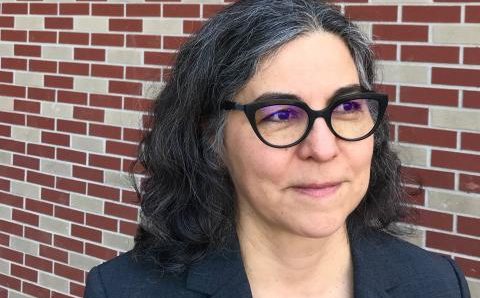The president of the University of Toronto’s Faculty Association (UTFA) has apologized for remarks she made in June that accused an “entitled powerful Zionist minority” of conducting “psychological warfare.”
But critics say her apology falls short.
Terezia Zoric had accused “Zionists” of waging a campaign of “unending harassment and psychological warfare” against supporters of Valentina Azarova, who was the preferred candidate for a position at UofT’s law school.
Azarova, whose academic work has been highly critical of Israel, ultimately wasn’t hired amid allegations that intervention by a wealthy donor had led the university not to offer her the job.
An investigation by retired Supreme Court Justice Thomas Cromwell found that immigration issues and not outside influence led the university not to offer Azarova the post of director of the law school’s International Human Rights Program.
At an online meeting called “What the hell happened at the University of Toronto Law School?” held in June, Zoric claimed that the “entitled powerful Zionist minority” were unfairly charging that those who opposed the Cromwell report were antisemitic.
Zoric apologized for the comments on the UTFA website on Nov. 1, saying, “although it was not my intention, I acknowledge that the words I used caused pain and distress to many of my colleagues who experienced them as insults.
“I apologize for using a phrase that evoked a negative trope,” she wrote. “I now better recognize how such tropes can tap into and reinforce harmful stereotypes about the Jewish community.”
While an apology is a “step forward,” Zoric’s statement, five months in coming, falls short, said Renan Levine, an associate professor at the university’s Scarborough campus, who is also a representative on the UTFA.
The apology includes a link to a video of the town hall meeting, which “raises questions about the sincerity” of the statement, Levine told The CJN. “That which you acknowledge is hateful or harmful should not be promoted or disseminated.”
While Zoric apologized for “the negative trope” she used, she didn’t go far enough, Levine said.
“The accusation that these Jews, this ‘powerful and entitled Zionist minority’ was engaged in a nefarious campaign leaves a charge of Jewish conspiracy on the table, without apology.”
The apology also fails to outline any tangible steps that Zoric will take to correct the harm she caused, Levine said.
“We are at a time when many of us who are Jewish on campus feel like antisemitism is both real and if not rising then becoming more visible and perhaps even more tolerated,” he said. “For many of us, the fact that there was no apology for so many months signals that…you can say something awful like this about Jews without any adverse consequences.”
The demand for a public apology was spearheaded by engineering professor Daniel Frances, who collected the names of 20 prominent faculty members after the June town hall. Zoric had apologized to Frances in a private email but he felt more was necessary,
The apology could have been distributed more widely, Frances said. He would have liked to see it in the student newspaper for instance, instead of just on UTFA’s website, but in general he was satisfied with the statement.
Louis Florence, a retired professor who served as treasurer for UTFA for three years until 2020, said the apology is insufficient and that Zoric should resign her position at the faculty association.
“She apologized for a phrase she used…. but she didn’t apologize for the accusations that she made which were targeted toward myself among other people, which were false, about unending harassment, about psychological warfare or about experiencing a horrible backlash,” Florence said.
“I think it was insincere, it rings hollow,” he said. “Her apology did not include anything to say ‘here are the action steps that we’re going to take to combat antisemitism at the university.’ She didn’t acknowledge that UofT has an antisemitism issue that she contributed to with her comments.”
Hillel UofT posted online that it had shared its “serious concern” over Zoric’s comments with the university administration. “We are pleased to learn that president of the UFTA has publicly apologized,” said Jay Solomon, chief spokesperson for Hillel Ontario.
